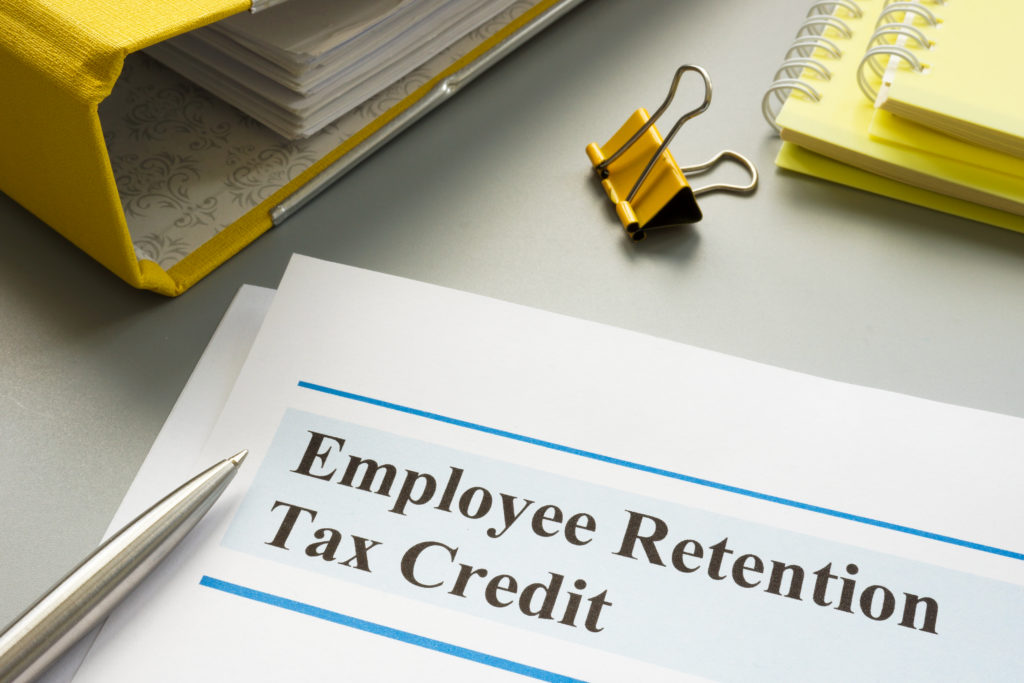Tax-Saving Tips
New Hope for Restoring and Fixing the Employee Retention Credit
As you may remember, two bad things happened to the Employee Retention Credit (ERC):
- On November 15, 2021, Congress retroactively repealed the ERC for the fourth quarter of 2021 (except for start-up businesses).
- On August 4, 2021, the IRS issued the clearly irrational Notice 2021-49, stating that a corporate owner with certain living relatives does not qualify for the ERC.
Hope in the House
On December 7, 2021, Rep. Carol D. Miller (R-WV-3) and three co-sponsors offered H.R. 6161, the Employee Retention Tax Credit Reinstatement Act, which would reinstate the ERC for the fourth quarter. On the day it was presented, the House referred the bill to its Committee on Ways and Means—a good thing.
Today, there are 54 bipartisan co-sponsors. The bill has some legs.
Hope in the Senate
On February 10, 2022, Sen. Margaret Wood Hassan (D-NH) along with four co-sponsors introduced S. 3625 (identical to H.R. 6161) in the Senate, where it was read twice and referred to the Senate Committee on Finance.
The bill now has seven co-sponsors. Sen. Hassan and three of the co-sponsors are on the Senate Committee on Finance—a good sign.
Your Turn
Now is a good time to call your congressional representatives and ask them to both
- support H.R. 6161 or S. 3625 to reinstate the ERC for the fourth quarter of 2021, and
- override IRS Notice 2021-49 and allow the ERC on the wages paid to corporate owner-employees. Clarity on this is important to everyone, including the IRS.
How to Do It
Make as many phone calls as you can. Start with the tax law writers, your senators, and your congressional representative. Here’s contact information for them:
- Richard Neal, Chairman, Committee on Ways and Means, United States House of Representatives (telephone: 1-202-225-5601; fax: 1-202-225-8112; for email and other contact info, click here)
- Kevin Brady, Ranking Member, Committee on Ways and Means, United States House of Representatives (telephone: 1-202-225-4901; fax: 1-202-225-5524; for email and other contact info, click here)
- Ron Wyden, Chairman, Committee on Finance, United States Senate (telephone: 1-202-224-5244; fax: 1-202-228-2717; for email and other contact info, click here)
- Mike Crapo, Ranking Member, Committee on Finance, United States Senate (telephone: 1-202-224-6142; fax: 1-202-228-1375; for email and other contact info, click here)
- Your congressional representative (telephone: 1-202-224-3121; for other contact info, click here)
- Your two senators (telephone: 1-202-224-3121; for email and other contact info, click here)
Please note that when you reach out in this way, it often feels as though you are communicating with a black hole and your message is not getting any attention. That’s wrong. Senators and congressional representatives log everything. You are being heard.
IRAs for Kids
Working at a tender age is an American tradition. What isn’t so traditional is the notion of kids contributing to their own IRA, especially a Roth IRA. But it should be a tradition, because it’s a really good idea.
Here’s what you need to know about IRAs for kids. Let’s start with the Roth IRA option.
Roth IRA Contribution Basics
The only federal-income-tax-law requirement for a child to make an annual Roth IRA contribution is to have enough earned income during the year to cover the contribution. Age is completely irrelevant.
So if a child earns some cash from a summer job or part-time work after school, he or she is entitled to make a Roth contribution for that year.
For both the 2021 and 2022 tax years, your working child can contribute the lesser of
- his or her earned income for the year, or
- $6,000.
While the same $6,000 contribution limit applies equally to Roth IRAs and traditional IRAs, the Roth option is usually better for kids.
Key point. A contribution for your child’s 2021 tax year can be made as late as April 15, 2022. So, there’s still time for that.
Modest Contributions to Child’s Roth IRA Can Amount to Big Bucks by Retirement Age
By making Roth contributions for a few years during the teenage years, your kid can potentially accumulate quite a bit of money by retirement age.
But realistically, most kids won’t be willing to contribute the $6,000 annual maximum even when they have enough earnings to do so.
Say the child contributes $2,500 at the end of each year for four years. Assuming a 5 percent annual rate of return, the Roth account would be worth about $82,000 in 45 years. Assuming a more optimistic 8 percent return, the account value jumps to a whopping $259,000. Wow!
You get the idea. With relatively modest annual contributions for just a few years, Roth IRAs can be worth eye-popping amounts by the time your “kid” approaches retirement age.
Vacation Home Rental—What’s Best for You: Schedule C or E?
Do you have a beach or mountain home that you rent out?
If the average period of rental is less than 30 days, you likely have a choice—either
- claim the income and expenses on Schedule C, or
- claim the income and expenses on Schedule E.
When Is Schedule C a Good Choice?
If you show a tax loss on your rental property, Schedule C is a great choice because it allows you to deduct your rental losses against all other income (assuming you materially participate in the rental property).
If you show taxable income on the rental property, Schedule C is not good because it causes you to pay self-employment taxes.
When Is Schedule E a Good Choice?
If you show taxable income on the transient rental, Schedule E is best because you don’t pay any self-employment taxes on Schedule E income.
If you show a loss on your transient rental and you materially participate, you can deduct your losses against all other income, but those Schedule E losses do not reduce self-employment income.
Okay, now you know how to play the game.
IRS in Summary Mode
In recent advice, the IRS stated that rentals of living quarters are not subject to self-employment tax when no services are rendered for the occupants.
But if services are rendered for the occupants, and the services rendered
- are not clearly required to maintain the space in a condition for occupancy, and
- are of such a substantial nature that the compensation for these services can be said to constitute a material portion of the rent,
then the net rental income received is subject to the self-employment tax.
Entertainment Facility: Perk for You, Your Net Worth, and Your Employees
Imagine this: your Schedule C business buys a home at the beach, uses it solely as an entertainment facility for business, pays off the mortgage, and deducts all the expenses.
Now say, 10 years later, without any tax consequence to you, you start using the beach home as your own.
Is this possible? Yes. Are there some rules on this? Yes. Are the rules difficult? No.
Okay, so could you achieve the same result if you operate your business as a corporation? Yes, but the corporation needs to rent the property from you or reimburse you for the facility costs, including mortgage interest and depreciation—because you want the title to always be in your name, not the corporation’s name.
The beach home, ski cabin, or other entertainment facility must be primarily for the benefit of employees other than those who are officers, shareholders, or other owners of a 10 percent or greater interest in the business, or other highly compensated employees. In this situation, you create
- 100 percent entertainment facility tax deductions for the employer (you or, if incorporated, your corporation), and
- tax-free use by the employees.
The employee facility deduction is straightforward. It has three splendid benefits for the small-business owner:
- You deduct the facility as a business asset.
- Your employees get to use the facility tax-free.
- You own the property and can use it personally without tax consequences once you no longer need it for business use. (Note that when you sell, you will have a gain or loss on the sale and some possible recapture of depreciation.)



